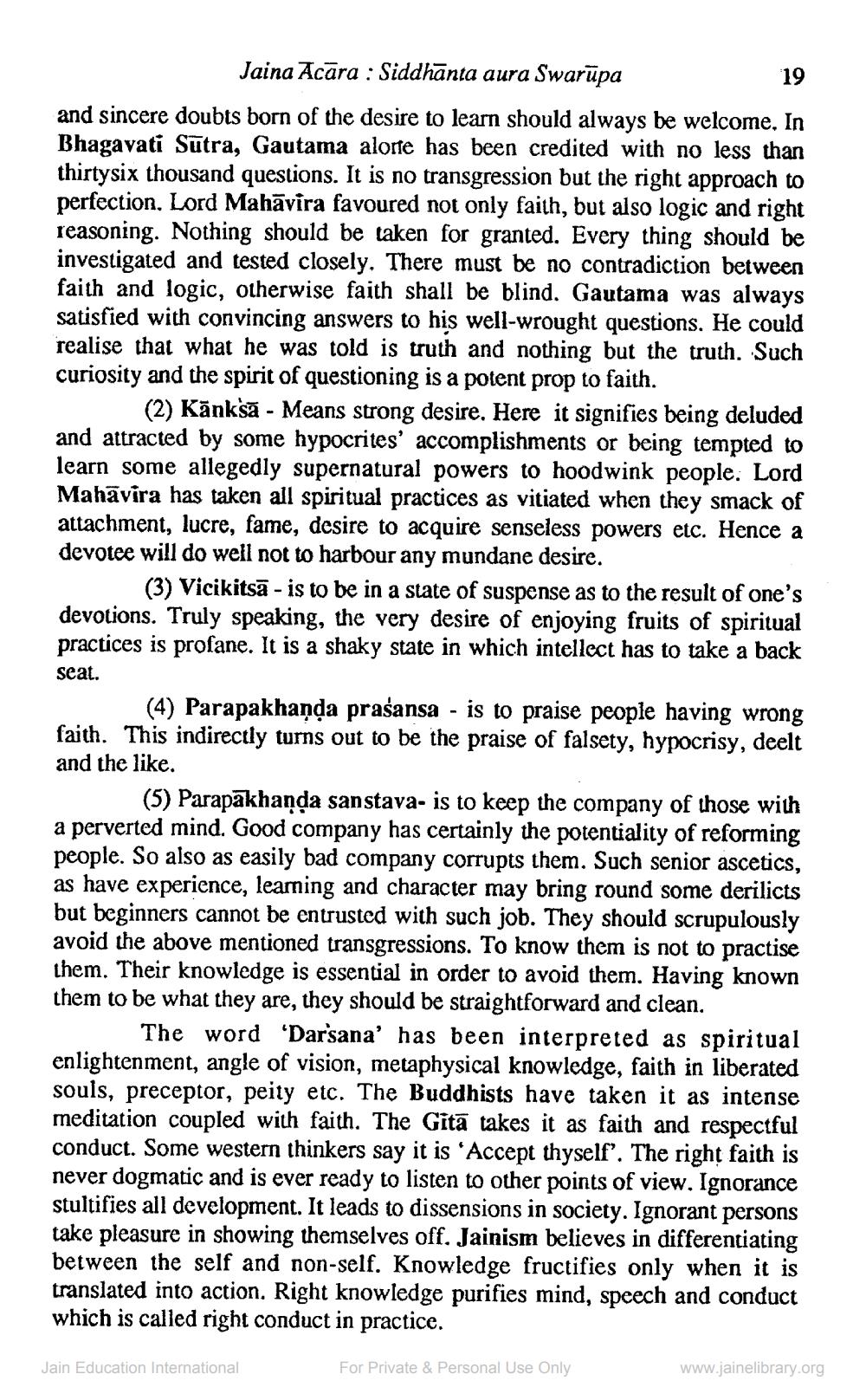________________
Jaina Acara : Siddhānta aura Swarūpa
19
and sincere doubts born of the desire to learn should always be welcome. In Bhagavati Sūtra, Gautama alorte has been credited with no less than thirtysix thousand questions. It is no transgression but the right approach to perfection. Lord Mahāvira favoured not only faith, but also logic and right reasoning. Nothing should be taken for granted. Every thing should be investigated and tested closely. There must be no contradiction between faith and logic, otherwise faith shall be blind. Gautama was always satisfied with convincing answers to his well-wrought questions. He could realise that what he was told is truth and nothing but the truth. Such curiosity and the spirit of questioning is a potent prop to faith.
(2) Kānkšā - Means strong desire. Here it signifies being deluded and attracted by some hypocrites' accomplishments or being tempted to learn some allegedly supernatural powers to hoodwink people. Lord Mahāvira has taken all spiritual practices as vitiated when they smack of attachment, lucre, fame, desire to acquire senseless powers etc. Hence a devotee will do well not to harbour any mundane desire.
(3) Vicikitsā - is to be in a state of suspense as to the result of one's devotions. Truly speaking, the very desire of enjoying fruits of spiritual practices is profane. It is a shaky state in which intellect has to take a back seat.
(4) Parapakhaņda prašansa - is to praise people having wrong faith. This indirectly turns out to be the praise of falsety, hypocrisy, deelt and the like.
(5) Parapakhanda sanstava- is to keep the company of those with a perverted mind. Good company has certainly the potentiality of reforming people. So also as easily bad company corrupts them. Such senior ascetics, as have experience, learning and character may bring round some derilicts but beginners cannot be entrusted with such job. They should scrupulously avoid the above mentioned transgressions. To know them is not to practise them. Their knowledge is essential in order to avoid them. Having known them to be what they are, they should be straightforward and clean.
The word 'Darsana' has been interpreted as spiritual enlightenment, angle of vision, metaphysical knowledge, faith in liberated souls, preceptor, peity etc. The Buddhists have taken it as intense meditation coupled with faith. The Gitā takes it as faith and respectful conduct. Some western thinkers say it is 'Accept thyself'. The right faith is never dogmatic and is ever ready to listen to other points of view. Ignorance stultifies all development. It leads to dissensions in society. Ignorant persons take pleasure in showing themselves off. Jainism believes in differentiating between the self and non-self. Knowledge fructifies only when it is translated into action. Right knowledge purifies mind, speech and conduct which is called right conduct in practice.
Jain Education International
For Private & Personal Use Only
www.jainelibrary.org




